Museum of Becarac, Pleternica, Celebrates Slavonia Folk Song
November 7, 2020 – Protected by UNESCO, the unmistakable Slavonian folk song style will get deserved attention at the new Museum of Becarac in Pleternica.
There are lots of pretty little towns in Slavonia like Pleternica. The average outsider often has no way of distinguishing between them. But, Pleternica is determined to stand out. In a smart and considered move, they've decided to become synonymous with a UNESCO-protected element of Slavonian and Croatian culture - Bećarac.
Last year, Bećarac Square was opened in Pleternica. Soon, the town will become home to another symbol of heritage preservation – the Museum of Becarac. The Museum of Becarac will be located right next to Bećarac Square in the center of the town.
Bećarac is a traditional and humorous type of folk song originally from Slavonia. It has an unmistakable sound. It is characterised by a rhyming, call-and-response type of delivery and is performed acapella or accompanied by the traditional Slavonian folk music style of tamburitza. The melody of Bećaraci remains constant, only the song words differ as it continues or is again performed. In this way, Bećarac is more akin to the traditional storytelling aspect of folk music than it is an individual song.
The first verse is sung by the choir leader and forms a logical thesis; it is repeated by the choir of gathered men. The second verse is a humorous antithesis, also repeated by the choir (but often broken by laughter). Bećarci is usually performed at the peak of a party as a drinking song after the crowd is sufficiently warmed up by wine and music. A series of bećarci can last indefinitely. Their words are often made up spontaneously. The creator of the lines of lyrics can draw on many different sources of inspiration - recent happenings, local stories, reputations, past songs and much more. The style is embraced by almost every band who you will ever hear play tamburitza music - young, old, traditional, or modern. Thus, the subject matter and language used can vary greatly, as does the appeal of the humour and the lyrics. If a writer creates a popular motif, it can be remembered, repeated and even replied to at later instances. It may travel outside of its source of origin in the same way traditional folk music always has.
Bećarac was declared an intangible part of cultural heritage by UNESCO in 2011. The name bećarac comes from the word bećar, meaning reveller, and the word is often used to describe young Slavonian bachelors.
Museum of Becarac to present Slavonian heritage in a modern way
As Požeški vodič reports, the Museum of Becarac project was presented at the beginning of 2020. The 1400 square meters that the Museum of Becarac will occupy has already been designated during the construction of Bećarac Square.
Below the stands of the square, it is planned to house a souvenir shop and a cafe. The Museum of Becarac itself will be built on two floors. The first is already visible when you walk through the passage under the stands. The larger part of the museum will be located underground, in the basement space. The museum is expected to open at the end of 2021.
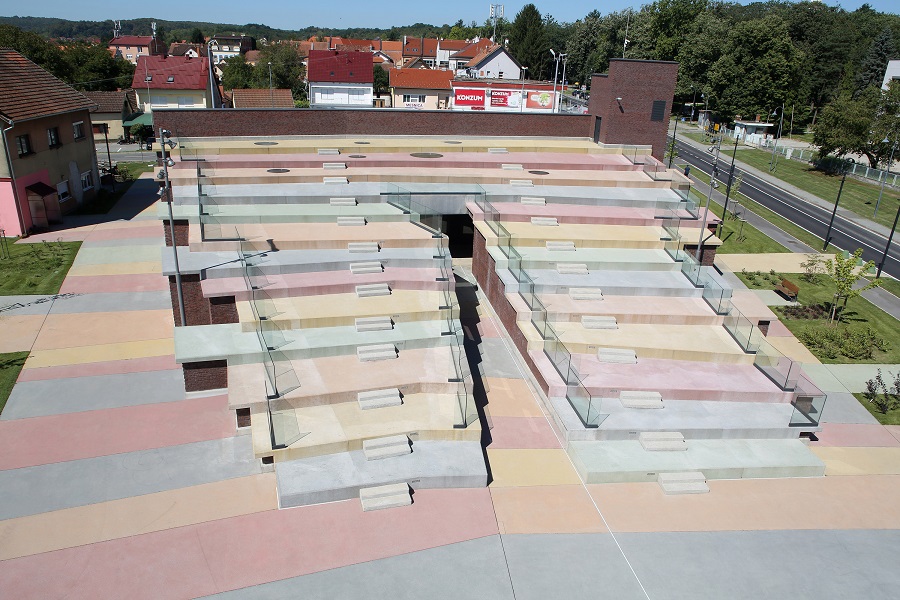
Bećarac Square in the center of Pleternica, under whose stands the Museum of Bećarac will be located, is designed as a reminiscence of golden Slavonian fields and sunny hills / D. Fabijanić, The City of Pleternica
"The Museum of Bećarac will be a presentation of heritage with all modern techniques: music, video, and visual recordings, and at some point, you will even have the feeling that you are running through wheat fields," said Antonija Jozić, the Mayor of Pleternica.
Apart from Slavonia, the Croatian regions of Baranja and Srijem are also home to bećarac, and it belongs to them equally. Furthermore, it is also performed in parts of southern Hungary and Vojvodina. It is a part of traditional culture throughout much of the Pannonian Basin. Like its UNESCO protection, its continued performances seek to preserve a special Slavonian tradition. This dedicated museum will also contribute to doing just that.
"Folk costumes and other objects will be exhibited in the museum, too, because it is very important, but we will use other methods to contextualize these objects. First of all, this is not a museum of folk costumes, but a museum of folk song bećarac. And it is performed. So we have to figure out how bećarac will be in focus all the time, but then we will, of course, talk about other anthropological, ethnographic, and historical phenomena related to bećarac," explained Dragana Lucija Ratković Aydemir, founder and director of Muza company which participated in the presentation of the museum project on January 13, 2020.
The Museum of Bećarac is part of a large project called "Svijet graševine" (The world of graševina), which is being carried out by the City of Pakrac, with the City of Pleternica as one of the partners. Out of the total 65.7 million kuna of the project, 30 million kuna is intended for the Museum of Bećarac, while the rest is intended for the City of Pakrac's "Spahijski podrum" project and branding.
The rich city cultural treasury
The Museum of Bećarac is designed as an extension of the tourist offer of the small Slavonian town. Pleternica has about 11,000 inhabitants, but every year, one event attracts as many as 100,000 pilgrims there. It is the Novena of Our Lady of Tears, whose sanctuary is located in the heart of Pleternica and for which the city of Pleternica is otherwise known. It is held every year from 23 to 31 August.
The June Days of Amateur Creativity called LIDAS are also important for Pleternica, during which the splendor of the cultural treasury of this region is presented. The children's tamburitza festival "Cvjetići glazbe" (Flowers of Music) is held on those days and is the only one of its kind in Croatia. Due to the parish church of Sv. Nicholas, who is the patron saint of the city, Pleternica City Day is celebrated each year on December 6th.
Pleternica has been looking for a "trigger" for a long time to help them attract even more tourists, and they finally recognized it in bećarac.
"Many years ago, at the suggestion of one of my fellow citizens, we protected the name of the Museum of Bećarac at the Intellectual Property Office because we felt that it could be a good story that would bring tourists to Pleternica. As European funds were available to us, we developed the project and, now we are in the phase of completing equipping the museum. I believe that from the end of next year we will be able to count the tourists who will come to Pleternica," the mayor Jozić told Večernji list.
An interpretation center rather than a museum
The museum currently produces all video and audio materials, applications, art installations, and procures all exhibits, and to consistently convey the spirit of Slavonian tradition to visitors, preparations by museologists, experts, and ethnologists are indispensable.
"The museum we are working on is not a classic museum, it is more of an interpretation center, that is, a visitor center. We will show all tourists who come what bećarac is and what Slavonian life is. And then, of course, when they visit the museum, we hope that they will visit all our other beauties, from wine roads and cellars to family farms," says Antonija Jozić.
Over 10, 000 Attend Music Festivals in Sibenik In 2020 - Zero Infections
September 22, 2020 - For six consecutive weeks this summer, the Martinska venue alone welcomed over 10, 000 international visitors to its music festivals in Sibenik. Zero cases of Coronavirus occurred.
Over recent years, three things have firmly placed Croatia on the international stage – Game Of Thrones, the World Cup and music festivals. Running for over a decade now, music festivals are the oldest of these. They have elevated places like Pula and Tisno to become among the most-Googled destinations in the country.
So popular now are Croatia music festivals, that many say the summer season of music festivals in Croatia has supplanted the famous hedonistic holidays of Ibiza as the hippest place to go. Incredible disappointment was therefore felt by tens of thousands of expectant party people earlier this year when most of the international Croatia music festivals decided to cancel their 2020 events. They did so in response to the Coronavirus pandemic.
One venue stood alone – Martinska, a 20-year-old site for music festivals in Sibenik. Over six consecutive weeks, all of their 2020 festivals took place. They did so under strict adherence to epidemiological guidelines. And, following a wait of two weeks after the final event (to cover any potential Coronavirus incubation period), site organisers Pozitivan Ritam have released their results - zero cases of Coronavirus.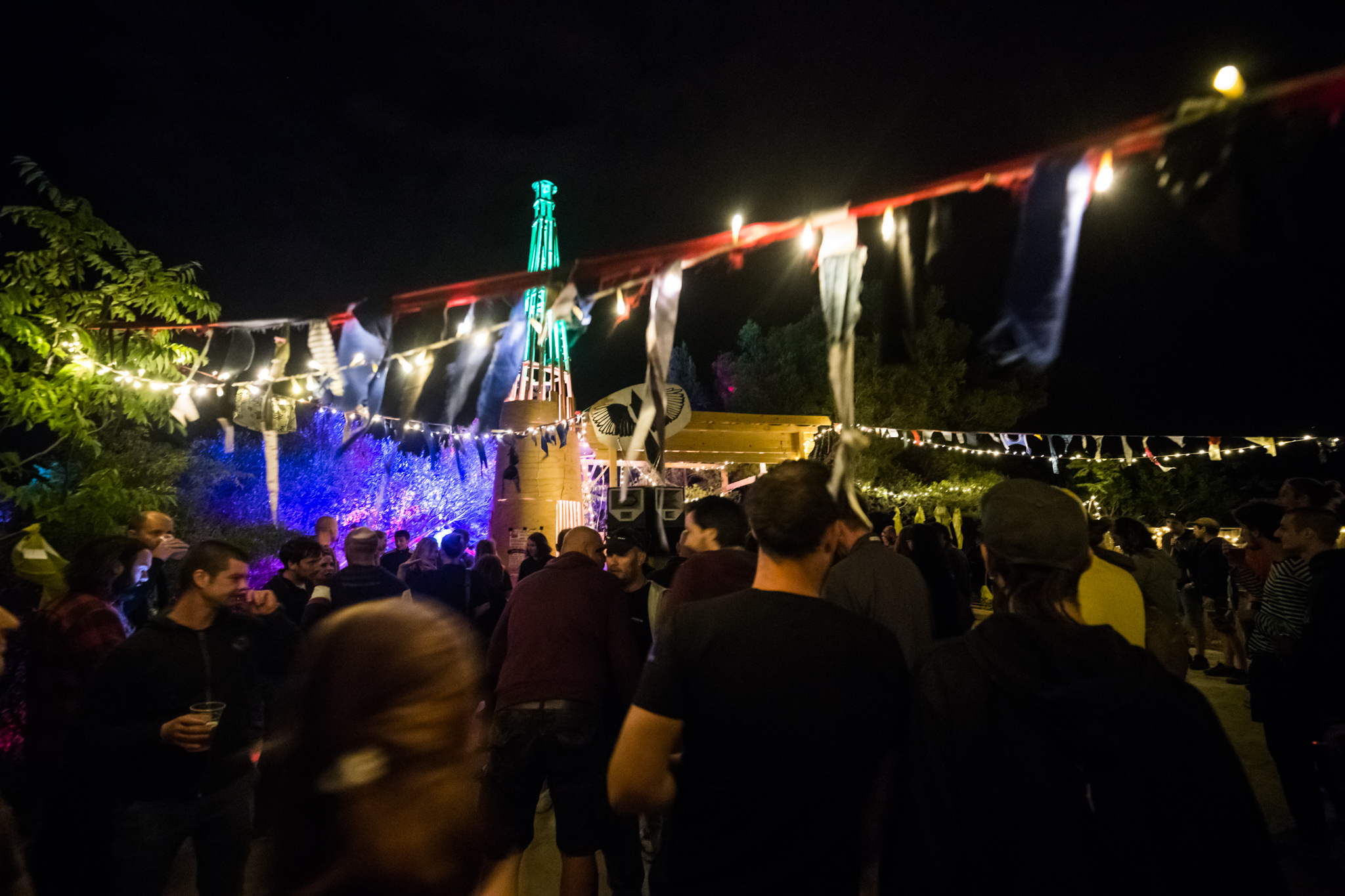
“It's not only the five festivals and one concert event that we did,” Pozitivan Ritam director Vedran Meniga told TCN, “The Fortress of Culture in Sibenik had more than 30 events this summer and Project Vojarna in Sibenik had two parties this year with over 4000 people. On one RTL television show, they described Sibenik as the Croatian Wuhan when 3000 people were in the town for one techno party there. But, at the end of the season, none of these events resulted in a single Coronavirus infection. Not one.”
Following a successful lockdown earlier in the year, cases of Coronavirus were limited in Croatia at the start of the season. Yet, some were understandably hesitant to come. Music festivals in Sibenik still managed to attract visitors from Britain, France, the Netherlands, Belgium and Germany to Martinska. Even after the middle of August when cases began to appear in other regions and international visitor numbers dried up, the festival site was still busy with Croatians and partygoers from near-neighbouring countries. At the end of August, there were no more than five infected persons in Sibenik. None were music festival or music event attendees. Throughout much of the summer, Sibenik recorded zero cases.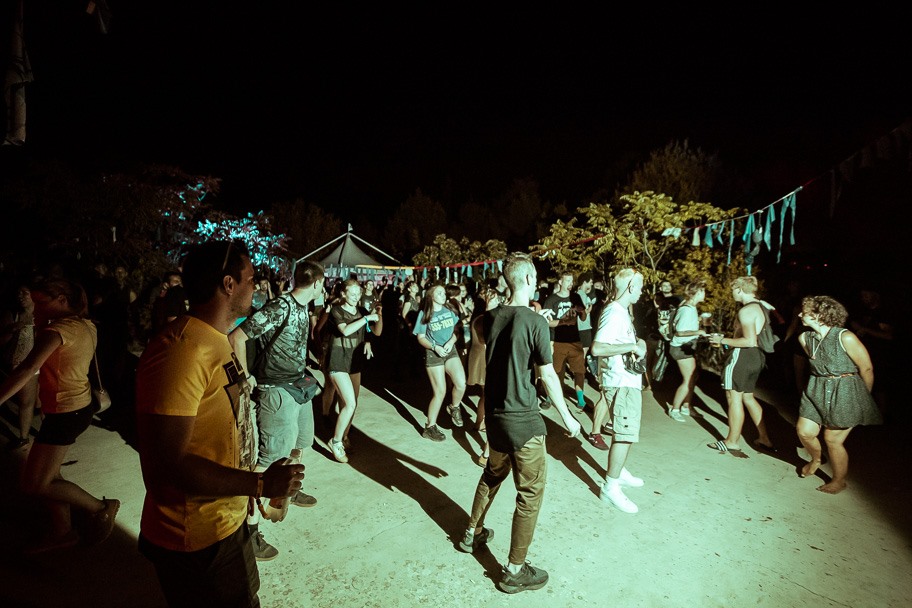
“The music festivals in Sibenik are proof that it's possible to work doing events during the era of Corona,” Meniga tells TCN. “Of course, all of our events were open-air and no doubt that helped.”
"When cases started to reappear elsewhere at the end of July, I went to the civil authorities and epidemiologists immediately, before they came to us,” says Vedran. “The civil authorities and the police grant the license for the events. I presented them with a plan and they were satisfied. They allowed us to continue.”
“It helped that Martinska is across the bay from Sibenik. Festival attendees don't even need to go into the town to come, they drive here straight from the Magistrala (Croatian coastal highway). Also, Martinska's capacity is five times bigger than the numbers we were going to cater for. The site can accommodate six to seven thousand. We expected no more than 1500 daily. That was more than enough space to maintain physical distance. We carefully took all contact details for each attendee at the entrance, in case something appeared and we (or authorities) had to later contact people. We also took everyone's temperature. And in addition to the required epidemiological sanitization, we also installed disinfectant pillars at every single point where money or goods exchanged hands. All our staff wore not only masks but also gloves. Four times the civil authorities made surprise visits to the site for inspection along with epidemiologists and police. Each time they were completely satisfied.”
Current forecasts for the Coronavirus response predict that a vaccine will not be available to cover everyone until the autumn of 2021. This has serious implications for at least one more tourist season. Yet, with the incredible achievements seen this summer at Martinska's music festivals in Sibenik, we can all take hope that events, tourism, and even life itself may continue to be enjoyed in the near future, as long as we're all smart about it.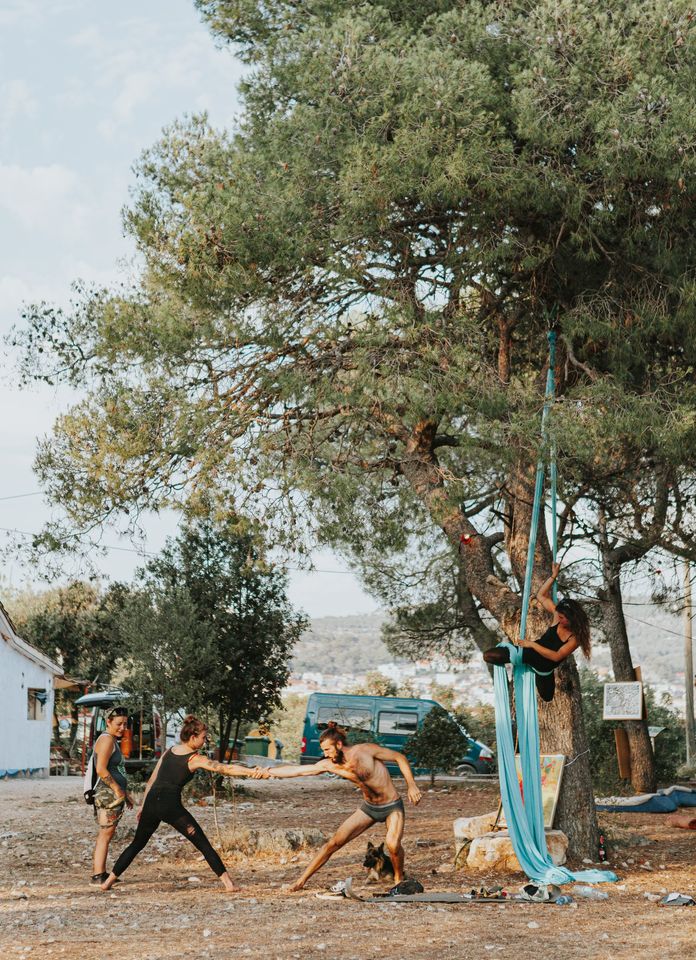
All photos 2020 Martinska © Seasplash / Pozitivan Ritam.
For the latest travel info, bookmark our main travel info article, which is updated daily.
Read the Croatian Travel Update in your language - now available in 24 languages
Split Open Jazz Fair 2020 Begins!
August. 28, 2020 - On Thursday, August 27, 2020, with the opening of the exhibition "Jazz Greats in the Ethnographic Museum", the Split Open Jazz Fair 2020 began. It is a photographic exhibition of portraits of jazz musicians by Davor Hrvoj from Zagreb, the doyen of Croatian jazz journalism ("It's time for jazz").
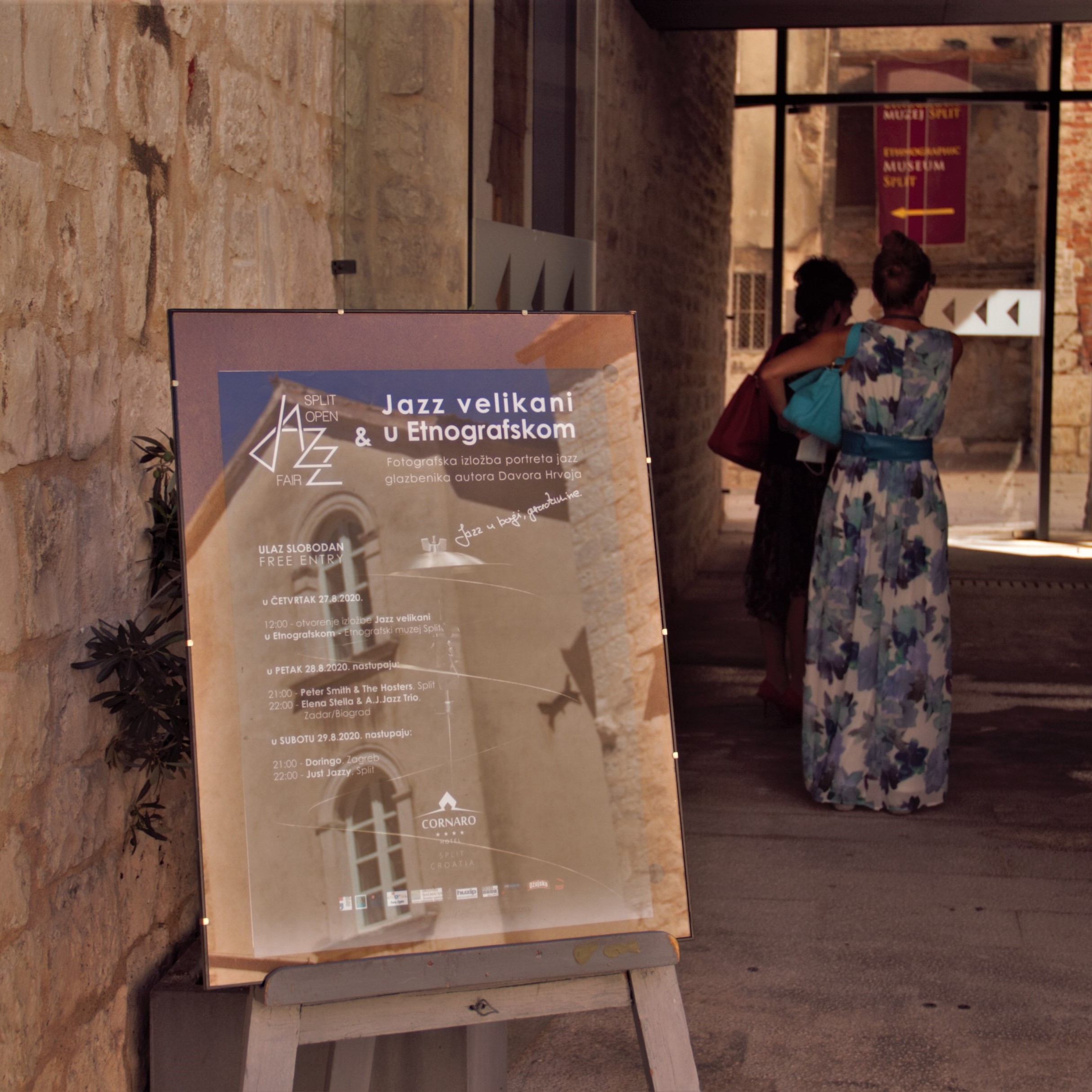
Hrvoj started working in journalism in the 1980s and published his works in numerous Croatian newspapers, such as Jutarnji list, Vijenac, and Gloria. He was a member of the international jury for the European Jazz Prize and is currently a member of several cultural councils and a leader of jazz events in Croatia. Besides, he is a permanent member of the Croatian Journalists' Association as a freelance journalist and the Croatian Music Union, the Croatian Society of Composers, and the Croatian Association of Independent Artists.

"Why portraits? Because in this way, with the help of a telephoto lens, it's possible to get closer to the gestures of artists and the spirit of jazz music and what musicians feel and the way they think. Unlike most other photographers, I like to wait for the end of a concert, when artists are already losing control of their behavior and their gestures. Then I catch them in those moments when they are truly natural when they are truly what they are", the author explains.

After the opening, there will be two concert evenings at Đardin as part of the Urban Culture Review - EVO RUKE 7 with, as always, free admission. The exhibition is open to visitors until 18.09.
"Since jazz is my life, as is theirs, this is how I try to capture the essence of jazz", Hrvoj concludes.
The program for two evenings of the concert program can be found below.
On Friday, 28.08.2020. perform:
21:00 - Peter Smith & The Hosters, Split,
22:00 - Elena Stella & A.J.Jazz Trio, Zadar/Biograd
On Saturday, 29.08.2020. perform:
21:00 - Doringo, Zagreb,
22:00 - Just Jazzy, Split
For the latest travel info, bookmark our main travel info article, which is updated daily.
Read the Croatian Travel Update in your language - now available in 24 languages
Bosnian Ethno Music Giants Mostar Sevdah Reunion Play In Split Tonight
August 16, 2020 - The world's most-famous contemporary Sevdalinka outfit, Mostar Sevdah Reunion, hold their first concert of the year in Croatia, as part of the 66th Split Summer Festival
The emotion-wracked melodies of the traditional Sevdalinka (or Sevdah) folk music have rung out across Bosnia for over 500 years. But, for the most famous contemporary band playing this style, the music fell silent on New Year's Eve.
That was the final performance by Mostar Sevdah Reunion, whose return to the live circuit has been halted by COVID-19. But, tonight (Sunday 16 August), at 9pm, they return to the stage.
The band will play a concert at 9pm in Sustipan in Split, the peninsula which lies south-west of the harbour, as part of the 66th Split Summer Festival. There, the emotionally-charged sounds of sevdah, sometimes described as the blues or soul music of the Balkans, will once again be set free.
The Balkan region has the richest and most unique range of folk musics in the whole of Europe; nowhere other than here can you hear styles, scales and rhythms from the near and far east infiltrate into European folk music styles. This melting pot of styles grants the region an exciting and diverse range of authentic folk musics, years ahead, in terms of progression and ambition, to other European styles (indeed, there's a reasonable argument to be made that jazz music emanates from Bulgaria and not America). Sevdah is arguably the most emotive of all the traditional folk musics from the area which encompasses the former Yugoslavia. It has fans across the whole region.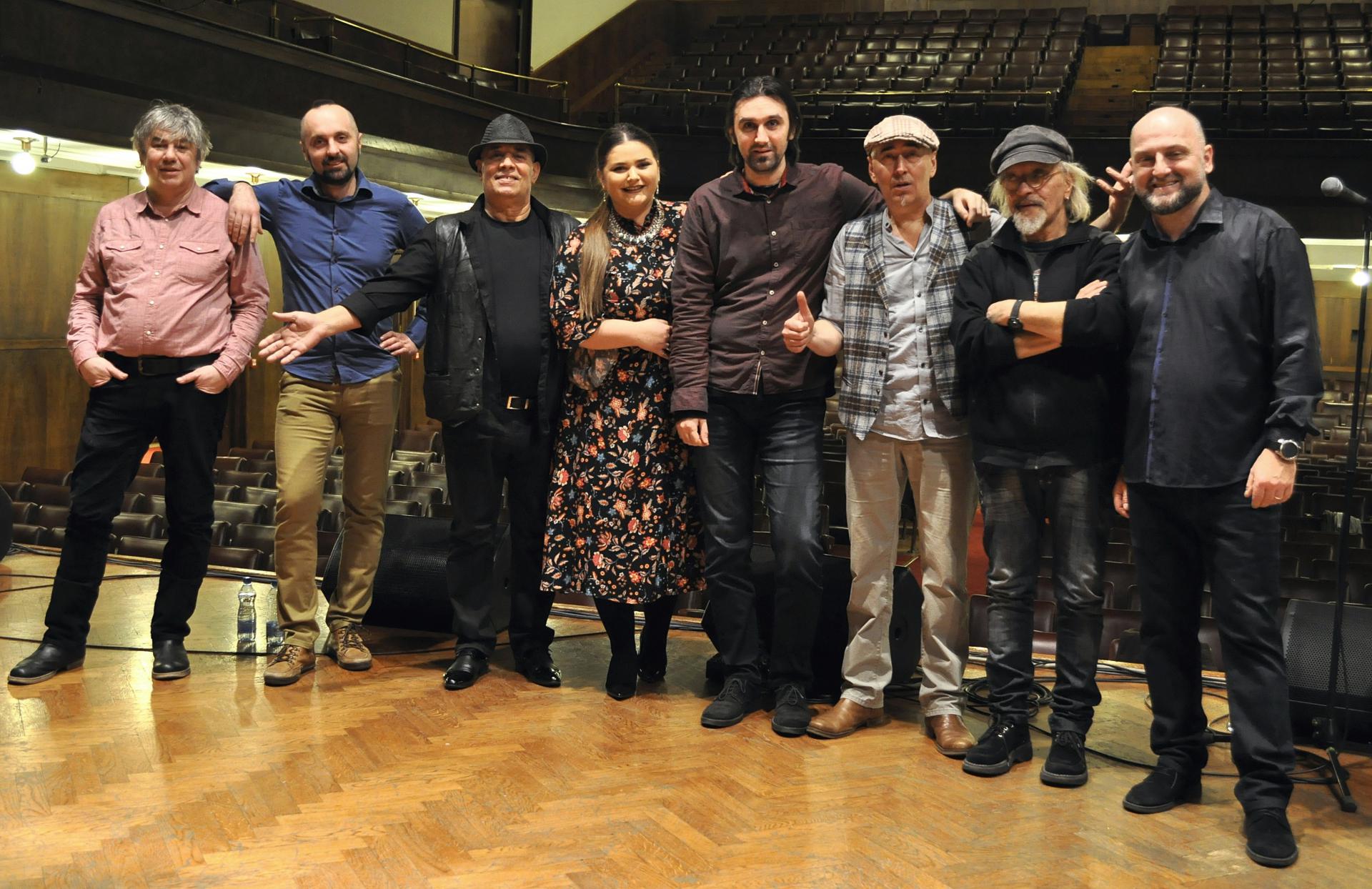
Mostar Sevdah Reunion
Emerging with their debut album in 1999, Mostar Sevdah Reunion have done more than any other contemporary band to place sevdah music on the world stage. They have recorded with true giants of sevdah and Roma music, such as Esma Redzepova, Šaban Bajramović and Ljiljana Buttler. In concert, they have appeared at Queen Elizabeth Hall and the Barbican Center in London, the Concertgebouw in Amsterdam, the Konzerthaus in Vienna, the Kremlin State Theater in Moscow, the Art Palace in Budapest, the North Sea Jazz Festival, the Nice Jazz Festival and WOMAD Festival. Mostar Sevdah Reunion have had several documentaries made about them.
The word sevdah comes from the Turkish word sevda which, in turn, derives from the Arabic sawda, a word often associated with a pining heart or unrequited love. Alongside the sevdah music they take their name and inspiration from, over the band's 25+ year career Mostar Sevdah Reunion have become famous for mixing jazz and even Latin styles into their music. In recent years have opened their repertoire to include a classic catalogue of Romani songs.
VIDEO: 2 Cellos Stjepan Hauser's Amazing New Performance From Dubrovnik
July 30, 2020 - 2 Cellos Stjepan Hauser has just released an amazing new performance from Dubrovnik
2 Cellos Stjepan Hauser has just released an amazing new performance from Dubrovnik. The video is the latest in his Alone Together series, which sees the world-famous cellist play music from some of his favourite movie scores.
So far in the series, he has visited places like Pula Arena and Krka Waterfalls. But, this time he has travelled to the south of Croatia to film in the stunning location of Dubrovnik, the Pearl of the Adriatic.
Serving as the most-spectacular location yet, you can see the walled city in all of its summer splendour by checking out the video right here.
2 Cellos Stjepan Hauser in Dubrovnik
Goodbye Istria, Hello Dalmatia! Seasplash Festival Moving to Šibenik
As SibenikIN writes on the 16th of January, 2019, the much loved Seasplash Festival is set to move from Istria where it has been held so far, to a brand new location for 2019's festival. Seasplash Festival's seventeen-year long tradition will take to Martinska beach in Šibenik, as the festival's organisers have revealed.
''Situated directly across from the city of Šibenik, on the unique Srima peninsula and at the entrance to Šibenik's harbour, Martinska will open up a new chapter in the history of the festival with its appearance and location. From July the 18th to the 21st, 2019, relaxing in the sun and the sea with the best of domestic and international reggae, dub, drum and bass, jungle, ska and punk is waiting for you at Martinska!,'' Seasplash Festival's organisers state.
Lee "Scratch" Perry, Scientist and Mad Professor - the trinity of still active diva and reggae legends will perform together on the main stage of the 17th Seasplash Festival. Martinska, as the new venue for the festival, will host some of the world's top bass music for its premiere.
Lee "Scratch" Perry, a true Jamaican icon, a music producer and a revolutionary, has the rightful title of one of the most enduring and most original reggae producers and performers of all time. In 2003, Perry won a Grammy for Best Reggae Album, in 2004, Rolling Stone added Perry to the list of the greatest artists of all time, and this year, in the eightieth year of his life, he will perform for the first time at Seasplash Festival. Bob Marley, The Wailers, The Clash, Beastie Boys, Max Romeo, and Adrian Sherwood are just some of the famous names he collaborated with.
After last year's memorable performance, the ingenious dub producer Mad Professor returns to Seasplash Festival. Until the early 90s, Mad Professor and his Ariwa Studio achieved a legendary status with over one hundred albums, world-wide tours and many stars (Depeche Mode, Jamiroquai, Beastie Boys). In the new millennium, with more than 200 released albums, Ariwa created his own soundsystem, with which he travels around the world, to various clubs and festivals.
Earlybird festival tickets for Seasplash Festival are now sold out, and currently tickets are being sold at a price of 249 kuna for the Republic of Croatia and the countries of former Yugoslavia.
Follow our dedicated lifestyle page for more.
Swiss Stage for Croatian Diaspora Performers in 2019
25th of November 2018 - That music is deeply rooted in the Croatian genes is a simple fact. Just look around a little bit, if you have never given it a thought, and you will realise that almost every village has its own dance and its own song. At least one, that is. This extends far from the country's borders and into the Croatian diaspora, and next year they'll have no less than a Swiss stage.
If you look alongside the coast, you can hardly find a hamlet without a ''klapa''.
And then all those festivals of all sorts (of music), everywhere. Folk, pop, jazz, new music, classical, experimental, you name it. However tiny, Croatia has given a noticeable contribution to the music of the world. Archives and museums can show you how music has been important over here since centuries. As an example, in the Museum of the Pharmacy in Dubrovnik, you can see a sheet of music from the early 12th century.
In the vicinity, just down the main street, you could find how Luka Sorkocevic, a local composer, wrote symphonies, a brand new music form, at the same time Haydn and Mozart were introducing it in Vienna.
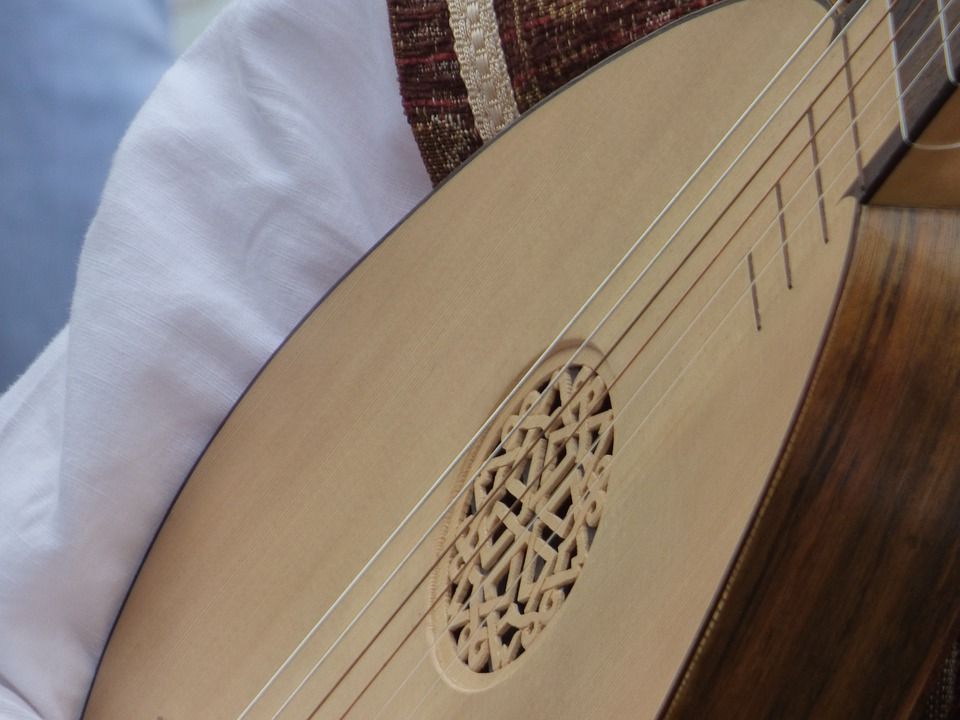
Yes, we love music, and we love to sing. Don’t you?
There is quite a number of festivals of light music in the country, but there is someone who is not satisfied with the chances they offer to the Croats living abroad. His name is Zoran Škugor, and he has decided to organise a festival for all the Croatian diaspora on a Swiss stage, more specifically in Zurich.
Zoran is an ''old-timer'' in the field. He has been in the business for almost 50 years, has managed a long list of musicians and his musical productions are quite uncountable. You know, the festivals at home are hardly penetrable to a (Croatian) musician living abroad. Each festival has its own circles, quite locally oriented, somebody from abroad would have to jump over many obstacles in order to be recognised and valued as ''worthy''.
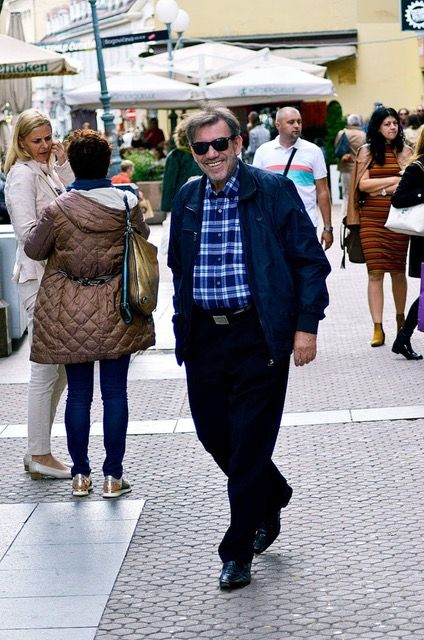
Zoran Skugor
''Knowing thousands of our people from diaspora, and having been asked by quite some talented Croats about how and why it is impossible for them to appear over here, I decided to organise a festival for all the Croats regardless of their residence, from Australia and both Americas to Europe. I joined hands with the Capo Music Production (CMP), established purposely and our first Music Festival of the Croatian Diaspora will take place in Zurich in February, 2019!'' says Zoran.
So good! Now what are the prerogatives to participate?
Any musician can apply by simply sending his new, still unpublished work to one of the two e-mail addresses: This email address is being protected from spambots. You need JavaScript enabled to view it. or This email address is being protected from spambots. You need JavaScript enabled to view it. . The composition should be between 3 to 3,5 minutes long, and it should be submitted to us not later than the 15th of December this year. A professional jury will make a final selection and there we go. The Festival is going to have its awards and a Grand Prix, and all compositions will be released on a festival CD.
Any particular limitations in genres?
We will start with light, pop rock, tamburitza and klapa (vocal, a cappella). We think that those four genres represent the most popular kinds of music among the Croats all over the world, and, not less, our musical roots will be there as well. We do hope that the festival will become traditional and that by further promotion of the artists participating it will contribute to the Croatian name around the world and a welcome refreshment and joy of music and being together to the Croats around the globe.
With precise dates of the Festival to be announced soon, if you are a Croat anywhere in the world and write music, or know someone who does and want to make a career out of it, pass this on and do not miss this very special opportunity yourself! Even as a member of the audience as you will have your say as a part of the jury of onlookers of those on the Swiss stage. Get ready and sing along!

Make sure to keep up with more information like this by following our dedicated Croatian Diaspora page.
Former Zagreb Military Hospital Building to Become Home for Musicians
A breath of new musical life for one former military hospital building located on Zagreb's Vlaška.
Liberty Festival Osijek - Teslacoin Bringing Communities Together Through Blockchain, Music and Sport
In Osijek soon?
Maksim Mrvica Wows The Crowd At Rocks & Stars Festival
Maksim Mrvica dazzles at the Rocks & Stars festival!


